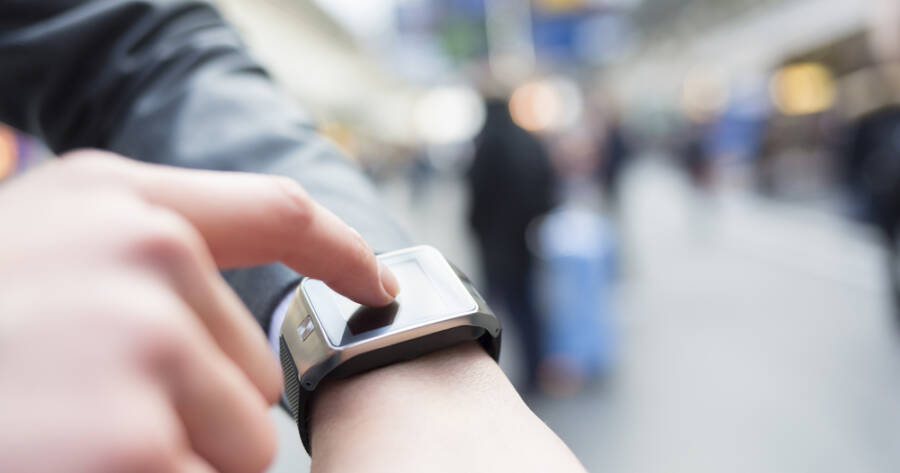Wearable health technology empowers individuals to proactively manage their well-being by tracking vital signs, monitoring chronic conditions, and detecting potential health concerns. These devices facilitate personalized and timely care by providing real-time data to healthcare providers.
What is Wearable Health Tech?
Wearable health technology refers to electronic devices worn on the body that can collect, process, and transmit health-related data. These devices range from simple fitness trackers to sophisticated medical devices capable of monitoring vital signs, detecting health conditions, and providing real-time feedback to users and healthcare providers.
Wearable health tech has gained significant popularity in recent years due to advancements in miniaturization, wireless connectivity, and sensor technology. These devices are often equipped with various sensors, including accelerometers, heart rate monitors, gyroscopes, and GPS, allowing them to track a wide range of health metrics such as physical activity, sleep patterns, heart rate, and blood pressure.
The data collected by wearable health devices can be stored on the device itself, transmitted to a smartphone or other mobile device, or uploaded to a cloud-based platform for analysis and visualization. This enables individuals to monitor their health and fitness progress over time and share their data with healthcare providers for personalized care and management of chronic conditions.1
Personalized Care, Healthier Lifestyles
Wearable health technology has the potential to revolutionize healthcare by enabling personalized and proactive care. By providing real-time data on an individual’s health and wellness, wearable devices can help healthcare providers make informed decisions about treatment plans and lifestyle modifications.
It can also empower individuals to take control of their health and adopt healthier lifestyles. By providing feedback on physical activity, sleep patterns, and other health metrics, wearable devices can motivate individuals to make positive changes to their daily routines and improve their overall well-being.
The Future of Wearable Health Technology
The future of wearable health technology is poised to bring even more advanced and impactful innovations. With the rise of artificial intelligence (AI) and machine learning, future wearables will likely become more sophisticated in analyzing data, predicting health outcomes, and providing personalized recommendations. AI-powered wearables could detect subtle changes in an individual’s health patterns, allowing for earlier detection of potential health issues and more precise interventions.
Finally, developments in nanotechnology may lead to the creation of even smaller and more discreet wearables, such as smart clothing or implantable sensors, that continuously monitor health metrics without requiring user interaction.2 As wearable health technology becomes more integrated into daily life, it has the potential to transform healthcare by enabling preventative care, reducing hospital visits, and improving patient outcomes on a global scale.
Privacy and Security Concerns
While wearable health technology offers numerous benefits, it also raises significant concerns about privacy and data security. The collection and transmission of sensitive health data, such as heart rate, sleep patterns, and even glucose levels, can make users vulnerable to data breaches or unauthorized access. Ensuring that this data remains secure is critical to protecting the privacy of individuals and maintaining their trust in these devices.
Many wearable health devices use encryption and other security measures to protect user data, but the effectiveness of these measures can vary between devices and manufacturers. Additionally, users need to be aware of the permissions they grant to apps that connect to their wearable devices, as third-party applications may access and share health data without the user’s explicit consent. Lawmakers and manufacturers must work together to implement stronger regulations and standards to safeguard personal health information as the adoption of wearable tech continues to grow.
Challenges and Considerations for Widespread Adoption
Despite the promise of wearable health technology, several challenges must be addressed to ensure its widespread adoption and equitable access. One major challenge is the cost of these devices, which can be prohibitive for many individuals, especially in low-income or underserved communities. Ensuring that wearable technology is affordable and accessible to all populations will be essential for maximizing its impact on public health.
Another consideration is the need for interoperability between different devices and healthcare systems. For wearable health technology to be truly effective, the data generated by these devices must seamlessly integrate with electronic health records (EHRs) and be accessible to healthcare providers in a standardized format. Ensuring that various wearable devices can communicate with different healthcare systems will require collaboration between tech companies, healthcare providers, and regulatory bodies.
Learn More
For individuals interested in learning more about wearable health technology and its applications, there are numerous resources available online and in libraries. Reputable sources of information include academic journals, industry reports, reputable news sources, and official publications.
These resources can provide detailed information on the latest advancements in wearable health tech, research findings, and practical tips for using wearable devices to improve health and well-being.
